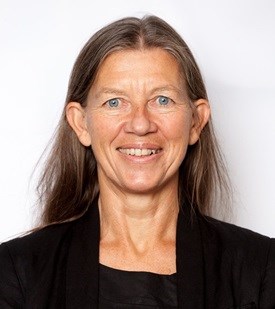






Geldenhuys believes that, "Access to justice is more than access to a court: it is access to quality legal services in order to be adequately represented by a professional in a legal matter."
The founding director of ProBono.org and winner of multiple awards for all the legal work she has provided pro bono, Geldenhuys chats to us about the difference between CSI and pro bono services, and what motivates her on a day-to-day basis.
"As this is CSI Month, it is important to distinguish between pro bono legal services and CSI, because to conflate the two, can result in valuable legal professional hours being lost to activities which do not need legal skills to be completed," says Geldenhuys.
"Corporate Social Investment (CSI) is defined by Trialogue as 'any social development activity that is not undertaken for the purpose of generating business income'. This comprises the cash and non-cash items given to people, organisations and communities that are external to the business. Law firms are also involved in CSI activities, such as painting a crèche in an informal settlement, or working in a soup kitchen. While these activities will make a difference in the life of the toddlers at the crèche, or those whose only meal they get from the soup kitchen, CSI activities do not use the unique skills and expertise that only lawyers have.
"Pro bono legal services are legal services provided to a poor and/or disempowered person, persons, community, or a non-profit entity that works with poor persons and/or communities, without them having to pay for such services. Therefore, what qualifies are those services which only lawyers can perform, and the recipient must be someone who cannot afford legal fees. As there is not nearly enough free legal services available for the number of people who are poor and disempowered, other criteria are also used to define pro bono legal services; and these include that the matter must have merit, and sometimes also that the matter must be in the public interest. (A public interest matter is when the principle is of greater importance than one individual or one community; and/or when it involves an issue that will create a precedent.)
"An example from another profession may be quite illustrative," she further explains. "Heart surgeon Dr. Susan Mees has 20 free hours per year. She can either use them to knit blanket squares, or she can go do open heart surgery on a toddler whose parents are unemployed. The impact of the open heart surgery is the impact lawyers can have with deploying their expertise in pro bono matters."
I am a full-time pro bono attorney at Webber Wentzel. Prior to this, I was the founder director of ProBono.Org. I am also a documentary filmmaker.
One of the great motivations behind founding ProBono.Org was to create a space where lawyers wanting to do pro bono legal work can find the kinds of cases that they have an interest in and the expertise for. Another driver behind the establishment of ProBono.Org was to grow a pro bono culture in South Africa.
While the recognition is personally rewarding, these awards are about so much more than the warm, fuzzy feeling. These awards, at local, regional and international level, is recognition of the remarkable pro bono legal work done at these different levels. That the African Legal Awards for Attorney of the Year went to an attorney who only does pro bono work, is for me a clear signal that a pro bono practice, in terms of status and standing is on par with any of the commercial or dispute resolution practices. The fact that the International Bar Association, the world’s largest membership-based organisation for lawyers, only has two annual awards: one for pro bono and the other for young lawyers, is an indication of the emphasis that the global legal community places on pro bono legal services. Receiving the Cape Law Society Pro Bono Attorney of the Year Award was a particular honour for me as the Cape Law Society was the first of the South African law societies to introduce pro bono rules.
The beauty of my work as a pro bono attorney is that every day is different, every matter has its challenges and rewards. A matter that stands out is the emoluments attachment order matter, which ran over a three and a half year period. It started with assisting 16 low-income people challenge the lawfulness of the emoluments attachment orders against their salaries, that resulted in a ground-breaking Constitutional Court judgment, and that concluded in Parliament amending the relevant legislation.
We occupy an interesting space among professionals. Like other professionals, we have specialised skills and expertise, which make us an elite profession. However, unlike other professionals (and we think of the heart surgeon example again), daily our services are required by poor and disempowered people. Our legal assistance may ensure that an indigent child is exempted from buying a school uniform, that a woman is not unfairly dismissed because she complained about sexual harassment, and that a community can oppose a mining operation that breaches all the environmental laws. By Webber Wentzel enabling me to do this kind of work without the clients having to pay for my services, we are ensuring that at least some people are not unfairly treated and that others can defend their constitutional rights. As a result, pro bono legal services make our society a better place for ordinary people.
South African law societies and bar councils have rules directing that all attorneys and advocates have a pro bono obligation. For attorneys that obligation is 24 hours per year. However, such mandatory pro bono requirement is not found in most other jurisdictions, including the USA and Australia, where lawyers fulfill their pro bono obligations on a voluntary basis. While one may argue that the mandatory nature of pro bono work is merely a confirmation of what attorneys will in any case be doing, a number of downsides are generally recognised to this compulsory approach. For me the biggest of these concerns is that one does not want clients to be served by lawyers who have been compelled to serve them and lawyers who are not willingly undertaking their obligation. Such clients are possibly at an even greater disadvantage.
I would like us to have a pro bono culture in South Africa, in which all lawyers willingly do pro bono legal work for poor people, according to their availability and their areas of expertise. I would like pro bono to part of the DNA of all lawyers.
I ask them whether they want a job where every day is different. I ask them whether they want a job where every day one has made a difference - be it for one person who has had their dignity recognised, be it for a non-profit organisation that assists mentally disabled people, be it creating a space wherein public participation can take place. And if their answer is 'yes' to just one of these questions, I suggest that they may want to do some pro bono legal work in their day.